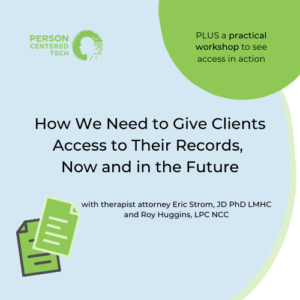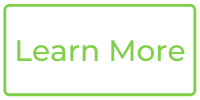Rights of Access is becoming a big deal and we are finding lots of colleagues are still unsure about what this means for their practice.
In this quick 11-minute video, Roy shares some key tips to help you grasp exactly what this will look like in your practice- whether you are in a group practice or in your own practice.
https://www.facebook.com/254167491309793/videos/253470976249685
Summary:
- Why is it important to talk about Rights of Access? It has always important! New rules are coming into effect to prevent “Information Blocking” or making it hard for clients to access their information.
Why not call it Open Notes?
- Some folks are referring to this legislation as “Open Notes” but this is a bit of a misnomer. If you are using an ONC-certified electronic system, they will be implementing features that will make it easier for clients to access their records. Information blocking does apply to us, even if we aren’t using an ONC- certified electronic system and gives extra “teeth” or enforcement power to the regulators. They are specifically looking for providers to avoid dragging their feet or impeding in any way client’s access to their records.
- The important thing to remember, and we encounter this a lot, is that many therapists and mental health providers aren’t aware of the rights clients have already when it comes to information and record access. The HIPAA rule, since 2003, has given client’s access to their records. The level of access is not new — client’s have a right to get access to their whole records. The only thing that has changed over time is the nuances in how you need to deliver records if you keep electronic records. And really that’s precisely what’s happening now with the Information Blocking rule. The client has always had these access rights, this rule just gives more teeth to the regulators who may observe that you are slowing down access to the records and gives software developers new requirements for smoothing client access to their records as they create and update their software.
Releasing records as a Solo Practitioner and a Group Practitioner - We all need to be prepared to help clients get access to their records. We need to make sure they know how to request copies and to provide copies within a reasonable timeframe.
- The main point here is to make it easy for clients to find how to request records. This is a key piece that looks different for group practices and solo practitioners.
- Ask yourself, are you managing the behaviors of yourself or more people than just yourself? What happens there is that if you are just managing yourself you can use a system that works easily for you, and fits the requirements and that you can follow, you are good to go. Just do that! But when you are managing the behavior of other people, it’s important to set processes that everyone can follow (and are written down!)
- For HIPAA compliance, it’s important that both solo practitioners and group practices have these written down as processes, but when you are a solo practitioner, and you’re just doing what works best for you, that is fairly straightforward. When you are managing the behavior and processes of other people who need to do record releases, it becomes the group’s responsibility to create a well-defined, smoothly operating process to be able to get the records and send them to the clients. The more people involved, like other clinicians and admin staff, the more important it becomes to think ahead and set those procedures and systems that show how a client can request a record, how the practice will manage the request, and how the records will be released to the client or whichever party the records have been requested they have been sent to.
- As usual, the main difference is whether or not you are managing the behaviors of other people and having those procedures and processes and systems (like Hushmail) in place. Make sure you have these clearly defined and implemented so that when a records request comes in, you can smoothly release the records.
- Another important, anxiety-relieving piece of this is that the rule is very clear. If you are not aware that you are information blocking, then you are not information blocking. While it is certainly no safe harbor, it’s a clear sign this is not Draconian and can provide quite a bit of peace of mind. As long as you are not purposely slowing down the process, then you are not information blocking.
We will have an upcoming 2-hr CE self study course with a follow-up workshop featuring mental health counselor and attorney Eric Strom, JD PhD LMHC. It’s for both solo practitioners and group practices. There will also be a “showing you how to do it” workshop so you can see records access in action.


